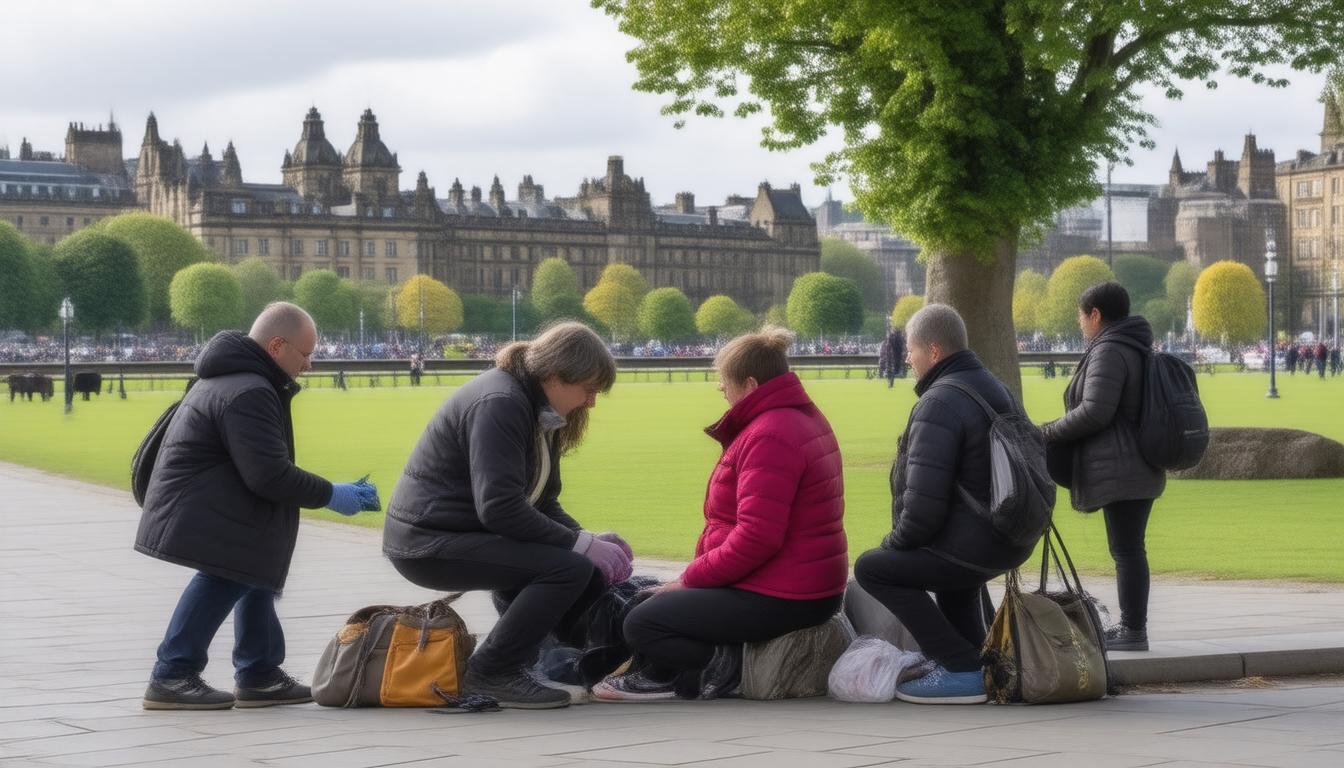As Edinburgh grapples with an escalating housing crisis, the City Council has made a decisive move to address the precarious situation of hundreds of homeless individuals currently lodged in unlicensed accommodations. Over 700 households remain in 28 properties that fail to comply with the necessary licensure requirements for Houses in Multiple Occupancy (HMO), prompting the council to implement an urgent relocation plan before the end of November
2024. This action follows a significant rise in the number of residents in temporary housing, increasing from 3,570 in 2020 to over 5,000 by
2023. Initially set up during the COVID-19 pandemic as a response to rising homelessness, these unlicensed accommodations have come under scrutiny due to legal warnings regarding health and safety compliance—a concern too grave to ignore as winter approaches.
Key Takeaways
- The Edinburgh Council plans to relocate homeless individuals from unlicensed accommodations to ensure safety and compliance with housing regulations.
- Over 700 households currently live in temporary, unlicensed properties due to a significant increase in demand for housing since the pandemic.
- The council’s urgent actions include suspending new applications for social housing to focus resources on lawful accommodations before the end of the month.
Background of the Temporary Housing Crisis in Edinburgh
The City of Edinburgh Council is set to expedite the relocation of over 700 households currently staying in unlicensed temporary accommodations, particularly hotels and bed-and-breakfasts, before the end of November
2024. This decision comes in response to ongoing legal and health risks associated with these unlicensed properties, which fall short of the required standards for Houses in Multiple Occupancy (HMO). Originally, these accommodations were secured as a temporary measure during the Covid-19 pandemic to cope with a surge in demand for housing, but the council has recently received legal warnings about funding operators who are not compliant with necessary health and safety regulations (City of Edinburgh Council, 2024). In an effort to prioritize lawful housing solutions, the council has temporarily halted new applications for social housing and non-urgent repairs, redirecting available resources towards preparing vacant properties for occupancy. This urgency is underscored by the substantial increase in the number of households in temporary accommodation, which has risen sharply from 3,570 in 2020 to over 5,000 by 2023, necessitating immediate action to resolve existing challenges ahead of December (The Scotsman, 2024).
The provisional strategy not only aims to bring existing accommodations into compliance but also reflects a broader initiative to tackle Edinburgh’s housing crisis in light of surging demand and limited availability of permanent housing solutions.
Council’s Plan for Relocation and Resource Allocation
The city council’s proactive stance indicates a recognition of the growing pressures facing the housing sector in Edinburgh. As the demand for housing continues to outstrip supply, the move towards relocating residents from unlicensed accommodations to more compliant facilities is not just a legal imperative but also a moral one (Edinburgh Evening News, 2024). The temporary suspension of applications for social housing and non-urgent repairs highlights the urgency of the situation, as the council seeks to mobilize all available resources to remedy the existing housing shortages. The overall goal is not only to align accommodations with legal standards but also to ensure that vulnerable populations are housed in safe and secure environments, significantly reducing the risks associated with non-compliant facilities (Scottish Government, 2024). This strategic shift underscores Edinburgh’s commitment to addressing homelessness and improving housing stability amidst a challenging landscape, reflecting broader trends seen across Scotland.





